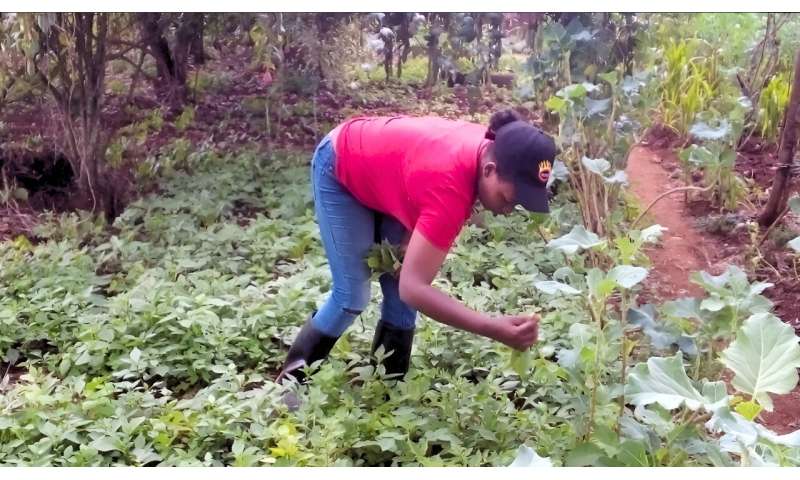African farmers armed with new tech to fight pests

Mary Ikigu, a vegetable farmer from Naivasha in Kenya, lost much of her crop each year to pests and diseases until she was introduced to a ground-breaking new digital tool, which gives precise information on what type of pesticides to spray, when and how.
"I learnt about the Crop Sprayer app from a local firm promoting the technology, and my life has changed ever since," Ikigu tells SciDev.Net.
"I have more money in my pocket, and my farming activities are less stressful too," she added.
The app suggests the right kind of pesticides to use and calculates the exact amount to apply and when, explains Ikigu, who previously lost between 20% and 30% of her produce to whitefly and other pests.
"This means that I now spend less on pesticides and get maximum crop protection from each spray," she tells SciDev.Net.
"Moreover, the app provides information on where to purchase the pesticides—meaning that I get the products from certified agro-dealers.
"This ensures I don't compromise my produce, poison my soil, or pollute the environment through uncertified products."
The Crop Sprayer app is among a group of digital tools developed by the agricultural research organization CABI (the parent organization of SciDev.Net), to help farmers solve the problem of pests and diseases, as part of its PlantwisePlus program.
Cost of crop loss
Each year, plant diseases cost the global economy more than US$220 billion, and invasive insects at least US$70 billion, according to the UN's Food and Agriculture Organization (FAO).
Under CABI's PlantwisePlus program—a global initiative to help countries predict, prevent and prepare themselves for plant health threats—farmers can access apps and online information helping them to adopt safe and effective agricultural practices.
This includes plant health information, plant protection support, and digital learning courses.
"A lot of what we have done starts from the observation that farmers lose up 40% of what they grow to pests and diseases," CABI chief executive
Daniel Elger told SciDev.Net in an interview on the sidelines of the Africa Food Systems Summit in Dar es Salaam, last week (4–8 September).
Elger said the aim was to reduce crop loses, enhance ecosystem services, reduce greenhouse gas emissions, and strengthen the resilience of agricultural systems in the face of climate change.
Prioritizing pests
Through technology developed as part of PlantwisePlus, pest threats can be prioritized based on risk and impact analysis, which ultimately leads to improved early warning of outbreaks and a coordinated response at regional, national and local level, explains Henry Mibei, CABI digital development manager.
CABI works with a number of other organizations in order to spread the word about these innovations, and PlantwisePlus now reaches over 54 million farmers.
"We leverage different channels including mobile platforms to reach more farmers," Mibei explains.
Thomas Thompson, an agronomist and director of the College of Agriculture and Life Sciences at Virginia Tech, U.S., says increases in productivity demonstrate that "a large and growing number of producers are adopting new technologies and practices."
However, there exist challenges, explains Idah Mugambi, CABI digital development project officer, based in Kenya.
"Accessibility is a challenge because most digital tools are available online and since most users do not have access to the internet," Mugambi says.
Vegetable farmer Ikigu is, however, happy that she can still access the pesticides app even when she's offline.
"It was great foresight for the developers of the app to provide an offline version, because we often experience network failure and we're not always able to afford data bundles," she tells SciDev.Net.
Provided by SciDev.Net